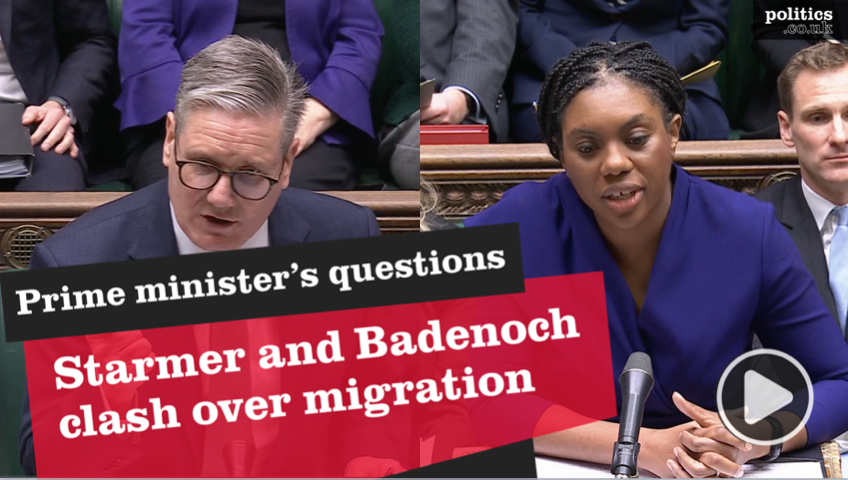After a night of covering ‘earthquake’ and ‘unprecedented’ results, BBC NI presenter Mark Carruthers struggled to find the words to depict the news from North Antrim as dawn broke on the Friday morning. “Whatever is bigger than seismic”, he offered. The 2024 election had already exhausted the stores of hyperbole.
And so we watched images from the count centre in Magherafelt largely in stunned silence as the BBC reporter valiantly sought a reaction from Ian Paisley Jr to the loss of his seat. This was no mere electoral defeat but the “end of a dynasty”, claimed a triumphant Jim Allister, leader of the Traditional Unionist Voice (TUV), revelling in his first Westminster success. Paisley had ‘inherited’ the North Antrim seat from his father 14 years ago, whom himself had been the incumbent since its creation in 1970.
The indomitable Rev Ian Paisley had been for many in Britain the figurehead of Ulster and its “No Surrender” politics. He had founded two bastion institutions of modern Northern Ireland unionism: the Free Presbyterian Church and the Democratic Unionist Party (DUP). The past quarter of a century has seen that party move from angry protests against almost every round of peace talks during the Troubles to becoming the largest party in Northern Ireland.
Indeed, the fortunes of the DUP can be said to have determined the fortunes of Northern Ireland for the past two decades. Power-sharing rules mean that no major political decision or action in Northern Ireland has occurred without its blessing –- until recently.


The post-Brexit arrangements established by the UK and EU in the Protocol on Ireland/Northern Ireland to address the unique circumstances on the island of Ireland had been agreed without the DUP’s involvement or approval. Having readily gone back on the terms of its confidence-and-supply arrangement with Theresa May to vote against her version of the Withdrawal Agreement, the party had found itself once more outside a set of negotiated talks, with no power to exercise other than that of protest.
And protest it did. Objections to the Protocol on Ireland/Northern Ireland escalated in 2021 to the point at which it decided to pull the emergency cord and exercise its veto over the power-sharing arrangements in the Executive and then the Assembly. However, in the absence of functioning devolution, support for devolution (quite naturally) declined among the wider NI electorate. Devolution is the only viable alternative to Irish unification; the longer the DUP stayed out, the weaker the prospects for the Union were becoming. It was only after securing firm commitments from the UK Government in the form of the Safeguarding the Union deal at the end of January this year that the DUP believed it had enough cover to return to Stormont.
Unfortunately for the DUP, the politics of Unionist protest and dissent that they had modelled, encouraged and exercised could not be switched off just because the party leadership decided to compromise. And so it was that the Traditional Unionist Voice saw the “bigger than seismic” overthrow of Paisley – the son of the original great disruptor. In his place, Jim Allister MP will enter the House of Commons.
There has been speculation as to where he will sit on the green benches. As a former DUP MEP, there is much familiarity but barely-hidden loathing between Allister and the DUP MPs. His natural companions will be in Reform UK. Indeed, Richard Tice had partnered with Allister in an early initiative to ally the two parties for the campaign. This was quickly shaken by Farage’s return.
When asked about Northern Ireland, Farage warmly endorsed the TUV’s opponent, Ian Paisley, who had been an enthusiastic pro-Leave, pro-Trump, anti-Protocol ally of his for several years. Happily for the TUV, any confusion in Reform UK as to its Ulster allegiances do not appear to have helped or hindered their success in North Antrim. That was down to Jim Allister merely reaching down and picking up on the same language, principles and objections to the Protocol that the DUP had placed front, left and centre of its political platform until just a few months ago.
The parallels between the TUV and Reform UK are striking. Their power lies not in seat numbers but their appeal to those feeling disillusioned with the mainstream party of the Right. Even before any success in a general election, they had shaped the discourse and objectives of the Conservative Party and DUP from outside. Now they are on the green benches we can expect to hear from them even more. They will continue to wield rhetoric and indignation and dogmatism in masterly ways.
But the truth is that they won’t be able to achieve anything more in real terms than they could before their electoral success. The best they can hope for is that the Conservative Party and DUP decide to come alongside them and bang the same drum. It is entirely possible the two far-larger parties will decide to do so. But all that will do is make the cacophony louder, and add to the impression that the protesting parties were right all along.
No matter how noisy or virulent, the type of power that can be wielded by protest alone is puny. It may bring attention but it can’t bring improvement. The DUP has already learned that lesson. Will it keep its head, and encourage the Tories to do the same? Losing seats in an earthquake election is a smaller price to pay than losing purpose altogether.
Politics.co.uk is the UK’s leading digital-only political website. Subscribe to our daily newsletter for all the latest election news and analysis.












